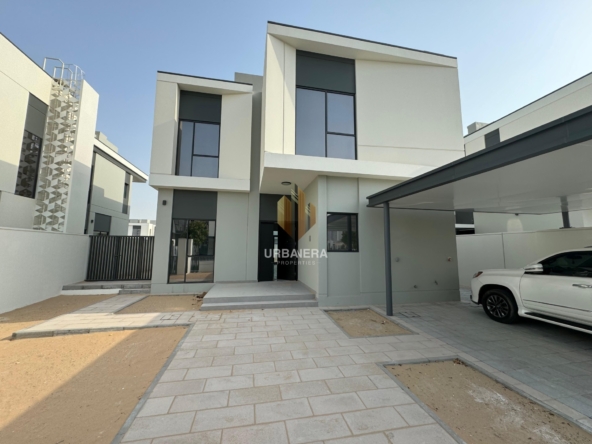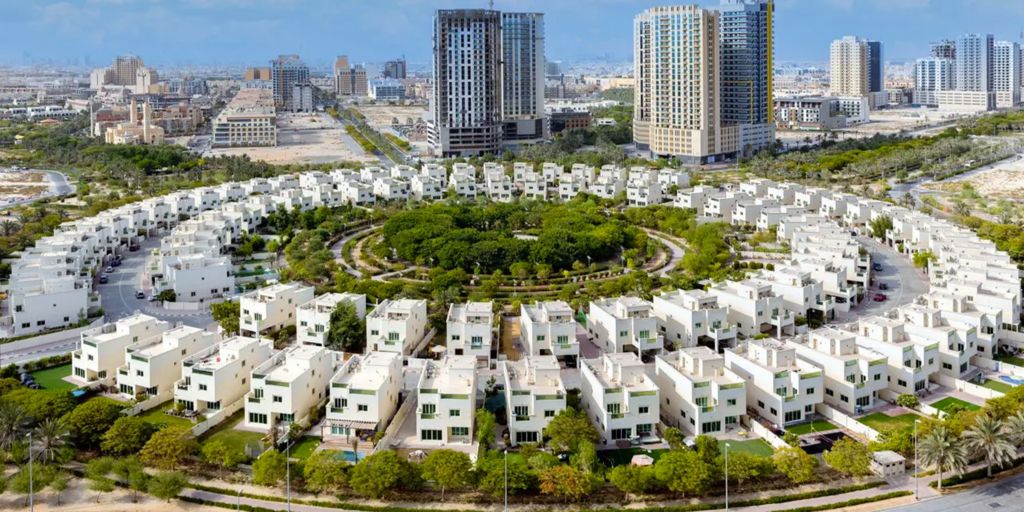Finding the right property, whether you’re a buyer or seller, can be a complex process. This is where two key figures in the real estate industry come into play: real estate agents and real estate developers. While both operate within the realm of property, their roles and areas of expertise differ significantly. Understanding these distinctions can empower you to make informed decisions throughout your real estate journey.
What is a Real Estate Agent?
A real estate agent, also known as a realtor®, acts as a licensed intermediary who facilitates the buying and selling of properties. They represent either buyers or sellers, advocating for their clients’ best interests throughout the transaction.
The Role of a Real Estate Agent
Here’s a breakdown of the key responsibilities of a real estate agent:
- Client Needs Assessment: Agents work closely with their clients to understand their specific needs and goals. This involves determining budget constraints, desired property features, and preferred locations.
- Market Research and Property Identification: Agents leverage their market knowledge to identify suitable properties for buyers or find potential buyers for sellers. They conduct thorough research on comparable properties, market trends, and local regulations.
- Property Showings and Negotiations: Agent schedule and accompany clients on property tours, providing insights and answering questions. They also negotiate offers and counteroffers, ensuring their clients secure the best possible terms.
- Paperwork and Closing: Agents handle a significant amount of paperwork involved in real estate transactions. This includes contracts, disclosures, and other legal documents. They guide their clients through the closing process, ensuring a smooth and successful transaction.
- Marketing and Communication: Agents utilize various marketing strategies to promote properties (for sellers) or find suitable options (for buyers). They maintain open communication with their clients, keeping them informed throughout the process.
Benefits of Buying from a Property Agent
While navigating the complexities of the real estate market on your own might seem tempting, partnering with a qualified real estate agent offers a multitude of advantages:
- Expertise and Market Knowledge: A good agent possesses in-depth knowledge of the local market, including current trends, property values, and neighbourhood nuances. They can advise you on realistic pricing, identify potential red flags in listings, and steer you towards properties that align with your budget and requirements.
- Streamlined Search Process: Sifting through countless listings can be overwhelming. Agents leverage their network and expertise to identify suitable properties that meet your specific criteria, saving you valuable time and effort.
- Negotiation Skills: A skilled agent is an invaluable asset during the negotiation process. They can effectively advocate for your needs, present compelling offers, and counter seller proposals to secure the best possible deal.
- Paperwork and Closing Assistance: Real estate transactions involve a substantial amount of paperwork. Agents handle the legalities, ensuring all necessary documents are completed accurately and filed on time. This relieves you of significant stress and ensures a smooth closing process.
- Protection of Your Interests: Throughout the transaction, an agent acts as your trusted advisor. They are ethically bound to represent your best interests and ensure you make informed decisions. They can also help you navigate complex legal and disclosure documents.
- Access to Off-Market Listings: Some desirable properties never reach the public market. Agents often have access to off-market listings that could be a perfect fit for your needs.
- Connection to Additional Resources: Agents have established relationships with various industry professionals such as mortgage lenders, home inspectors, and contractors. They can recommend qualified service providers, saving you time and ensuring you connect with reliable experts.
Remember, a good agent works for you, not the seller. They are motivated to find the right property for you, not just close a quick deal.
What is a Real Estate Developer?

A real estate developer is an entrepreneur who identifies potential real estate opportunities, acquires land, secures financing, and oversees the construction or renovation of properties. Developers take on the financial risk and aim to generate profit from the sale or lease of the developed properties.
The Role of a Real Estate Developer
The responsibilities of a real estate developer encompass the following:
- Market Analysis and Opportunity Identification: Developers conduct thorough market research to identify areas with high demand for specific types of properties.
- Feasibility Studies and Project Planning: Before embarking on a project, developers create feasibility studies to assess the financial viability and potential returns. They also develop project plans outlining the scope of construction, budget, and timeline.
- Land Acquisition and Entitlements: Developers secure suitable land for their projects and navigate the legal process of obtaining necessary permits and approvals.
- Project Financing: Developers secure financing for their projects through various means, including bank loans, private investors, and equity partnerships.
- Construction Management: Developers oversee the entire construction process, managing contractors, architects, engineers, and other project stakeholders.
- Marketing and Sales: Once construction is complete, developers implement marketing strategies to attract buyers or tenants for the developed properties.
Benefits of Buying from a Property Developer
While the traditional resale market offers a vast array of options, purchasing from a developer presents unique advantages:
- Early Access and Selection: Be among the first to own a brand-new property. Developers often offer pre-sales opportunities, allowing you to secure your dream home before it hits the open market. This can be particularly advantageous in high-demand areas with limited inventory.
- Modern Amenities and Design: New developments are built with modern features, energy-efficient technologies, and contemporary design elements that may not be readily available in older properties.
- Potential for Customization: Some developers offer options to personalize your new home by selecting finishes, flooring, or even customizing layouts within predefined parameters. This allows you to create a space tailored to your specific preferences.
- Community Features and Amenities: Many new developments are designed as integrated communities, featuring amenities like swimming pools, gyms, playgrounds, or shared green spaces. This fosters a sense of community and provides convenient access to amenities right at your doorstep.
- Developer Incentives: Developers may offer attractive incentives to attract buyers, such as discounts on the purchase price, closing cost credits, or upgraded appliances.
- Investment Potential: New developments in well-planned locations can offer promising investment potential. As the area matures and demand grows, the value of your property may appreciate over time.
Some potential drawbacks you may see:
- Construction Delays: Unforeseen circumstances can cause delays in the construction timeline. Be prepared for potential delays to your handing-over date.
- Hidden Costs: Carefully review the purchase agreement and factor in potential costs like homeowner association (HOA) fees or additional charges for upgrades not included in the base price. If you are buying in Dubai you have to pay 4% of the property value.
- Limited Negotiation: While some developers may offer room for negotiation, the flexibility on price might be less compared to established properties in the resale market.
How to Find the Right Agent or Developer for Your Needs

Choosing the right partner, whether an agent or a developer, is crucial for a successful real estate experience. You can go through the steps below:
Finding a Real Estate Agent:
- Get Referrals: Ask friends, family, and colleagues for recommendations of agents they have had positive experiences with.
- Research Online: Use online directories and review platforms to find agents in your target area. Read client reviews and testimonials to gauge their reputation and service quality or you can contact Urbanera Properties for more information.
Finding a Real Estate Developer:
- Research Development Projects: Identify developers active in your preferred area and research their past projects. Look for developers with a strong track record of quality construction and successful project completion. If you are in search of buying apartment or villa in Dubai, then reach out Urbanera Properties they are best real estate agency in Dubai.
- Read Reviews and Check Credentials: Read online reviews from previous buyers and research the developer’s reputation and experience. Verify if they are properly licensed and bonded.
- Visit Completed Projects: If possible, tour completed projects by the developer to assess their quality standards and design aesthetics.
- Review Financial Stability: While not always readily available, inquire about the developer’s financial stability. This can give you peace of mind regarding the project’s completion.
- Consider Incentives and Warranties: Compare the incentives offered by different developers, such as free upgrades or closing cost credits. Understand the warranties provided by the developer for the construction and finishes.
Developer v Agents FAQs: Busted Myths and Key Differences
Who should I choose, an agent or a developer?
If you’re looking to buy an existing property, a real estate agent can be your guide. They’ll help you find suitable options, negotiate the best price, and navigate the closing process. If you’re interested in a new development, or want to buy off-pan property still real estate agency can answer your questions and guide you through the buying process for those properties. Developers’ sales team also can guide you through the process.
What is the difference between a broker and a developer?
A real estate broker is a licensed professional who can assist with buying, selling, and managing properties. They may also employ real estate agents who work under their license. Real estate developers, on the other hand, specialize in creating new properties through acquisition, construction, and marketing.
What is the difference between a real estate developer and a construction company?
- Real estate developers manage the entire project lifecycle, from opportunity identification and land acquisition to financing, construction, and marketing. They are responsible for the overall vision and financial success of the project.
- Construction companies are contractors who handle the physical building process. They are hired by developers to execute the construction plans according to specifications.
What is the difference between a real estate agent and a property developer?
“Real estate agent” and “property developer” are essentially different terms for the same concept. Both refer to professionals involved in the real estate market, but their functions differ significantly. A real estate agent deals with existing properties, while a property developer focuses on creating new ones.
What does developer mean in real estate?
In real estate, a developer is an entrepreneur who identifies opportunities, acquires land, secures financing, and oversees the construction or renovation of entirely new properties. They take on the financial risk of the project in anticipation of future profits from the sale or lease of the completed properties.
Do I need a real estate agent if I’m selling property to a developer?
An experienced real estate agent can be valuable when selling to a developer. They can help you understand the development process, negotiate the best possible price, and ensure your interests are protected throughout the transaction.










